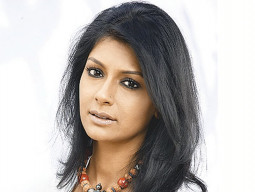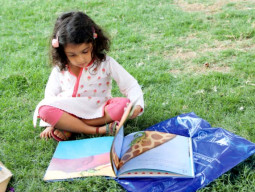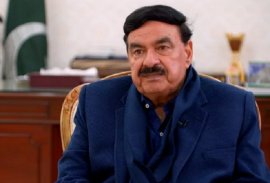
Laxmi is flamboyant, Laxmi is ardent and Laxmi is unapologetic. Laxmi is comfortable with who she is, and will not stand anyone assigning a gender role to her just because the doctor who delivered her said ‘it’s a boy’. Laxmi is a sane human being and knows her identity better than you.
If you happened to be in the main gardens for the first session of the 7th Karachi Literature Festival on Friday, you will know this to be true of Indian khwaja sira activist Laxmi Narayan Tripathi who had a candid conversation with scholar Arfa Sayeda Zehra. The session was interspersed with Laxmi’s “I love you” declarations for Zehra, who promptly replied with “I love you too” every single time.
To mainstream transgender people, NCA hires them
Tilted ‘Dilemma of the Transgender’, the session constituted a lively dialogue on the life of the ‘Me Hijra, Me Laxmi’ author and her role in the 2014 India Supreme Court ruling that recognised transgender as a third gender on all documents.
Laxmi, who was the first transgender person to represent Asia Pacific in the UN in 2008, is grateful to her supportive family who insisted she stay at home even after discovering the ‘different’ identity to which their son conformed to. This is nothing short of a stigma in the subcontinent where the third gender is largely considered pariah and is left to fend for itself in a society that to this day is unwilling to accept hijras as someone who deserves the same rights and privileges as the conventional man and woman.
“My father, an epitome of manhood himself, said in an interview, ‘My Laxmi is normal; maybe her preferences are different than what’s labelled normal, but Laxmi will remain my child and will always be dear to me as my other children’,” she recalled.
Artspeak: Stories from the transgender community
The 36-year-old believes history has been unjust to the people of her community. “Before the British coloniser, being a khwaja sira was never a big deal and was never considered a taboo,” she said. “In fact, the hijras were entrusted with the most sensitive tasks and were honoured with prominent posts. It’s the ‘goras’ who cast us aside by imposing discriminatory rules based on our gender. They damaged our identity and they feared us so much that they went out of their way to malign us and label us as an ‘unnatural’ phenomenon.”
The take-home points from the highly entertaining session were for women to start loving and appreciating themselves, if they wish to balance out the overwhelming patriarchy engulfing the entire region. Secondly, Laxmi wants the term ‘hijra’ to become a norm, as she believes transgender is too broad and ‘colonial’ a word to define the specific sect she identifies with.
Laxmi is a firebrand and there is no indication that her thirst for securing and protecting rights for the transgender community will be quenched anytime soon.
Published in The Express Tribune, February 6th, 2016.






































COMMENTS (1)
Comments are moderated and generally will be posted if they are on-topic and not abusive.
For more information, please see our Comments FAQ